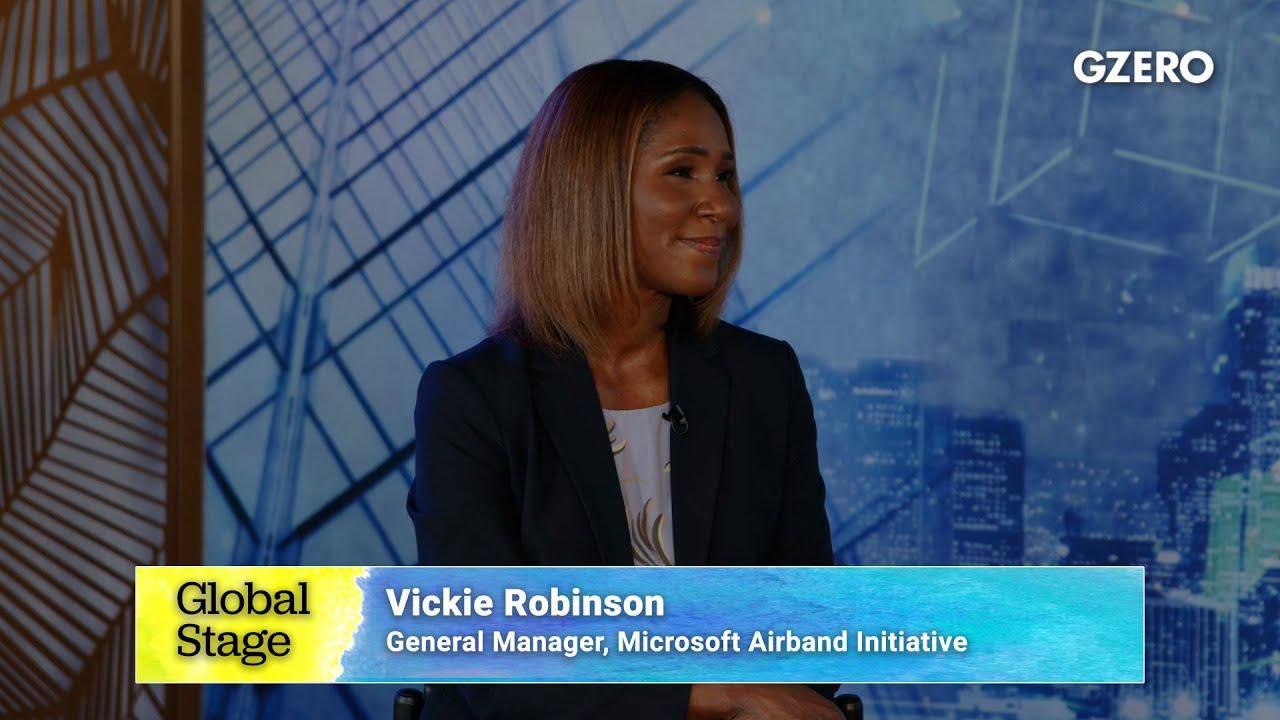
Make Internet Affordable, but Not Free for All | Global Stage | GZERO Media
Free internet for everyone sounds great, but what's really important is for it to be accessible, says Vickie Robinson, head of Microsoft's Airband Initiative to expand broadband access throughout the developing world. The problem, she explains, is that it costs money to build and maintain networks, so no costs for end users could have unintended consequences. "If you have a framework in which the internet is free for all, do we lose some freedoms? Do we lose innovation? Do we lose the use of the internet as a tool for empowerment?" Instead, Robinson would focus only on giving access to people who really need it and can't afford to be online.
Robinson weighed in during a Global Stage livestream conversation hosted by GZERO Media in partnership with Microsoft during the 76th UN General Assembly.
Learn more: Should internet be free for everyone? A Global Stage debate